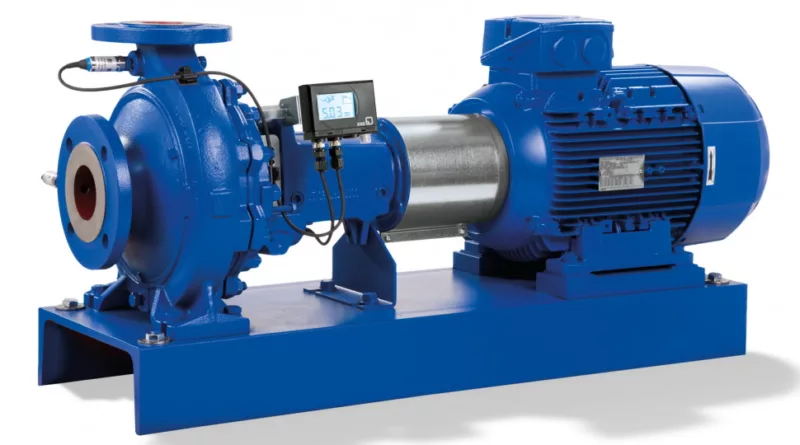Which is Better Comparing Canned Pumps to Traditional Centrifugal Pumps?
One of the most popular pieces of equipment in many sectors, including chemical processing, water treatment, and oil and gas, are pumps. Canned pumps and standard centrifugal pumps are the two most widely utilized types of pumps in industrial settings. While transporting liquids from one location to another is the same function of both pumps, there are some significant distinctions between them. We’ll compare canned pumps to conventional centrifugal pumps in this post and talk about which is preferable for various uses.
What are Canned Pumps?
A canned pump is a type of centrifugal pump that has a hermetically sealed motor inside the pump casing. The motor and pump are coupled together so that they rotate together. The entire assembly is enclosed in a metal can, which is filled with a dielectric fluid such as oil. They can act as a barrier between the motor and the pumped fluid, preventing contamination of the fluid by the motor.
What are Traditional Centrifugal Pumps?
A traditional centrifugal pump, on the other hand, is an open system in which the pump impeller is mounted on a shaft that is driven by a motor outside the pump casing. The impeller creates a centrifugal force that moves the fluid through the pump and out of the discharge port. Traditional centrifugal pumps require mechanical seals to prevent the fluid from leaking out of the pump casing and into the motor or environment.
Which is Better for Abrasive or Corrosive Liquids?
When it comes to handling abrasive or corrosive liquids, canned pumps have an advantage over traditional centrifugal pumps. The hermetic seal in a canned pump prevents the pumped fluid from contacting the motor, which makes it ideal for handling corrosive or abrasive fluids. In contrast, traditional centrifugal pumps require mechanical seals, which can wear out quickly when handling abrasive or corrosive fluids. Once the seal fails, the fluid can leak into the motor, causing damage or even failure.
Which is Better for High-Temperature Liquids?
Canned pumps are also better suited for handling high-temperature liquids. The hermetic seal in a canned pump prevents the pumped fluid from coming into contact with the motor, which can be damaged by high temperatures. In contrast, traditional centrifugal pumps require mechanical seals that can fail at high temperatures, causing leaks and potential damage to the motor.
Which is Better for Applications that Require High Efficiency?
When it comes to efficiency, both canned pumps and traditional centrifugal pumps can be designed for high efficiency. However, canned pumps have an advantage in terms of overall efficiency. Because the motor and pump are coupled together in a canned pump, there are no losses due to mechanical coupling or bearings, which can reduce efficiency in traditional centrifugal pumps.
Which is Better for Applications that Require Low Maintenance?
Canned pumps are also better suited for applications that require low maintenance. Because the motor and pump are enclosed in a hermetic seal, there are fewer moving parts to maintain or replace. In contrast, traditional centrifugal pumps require regular maintenance to replace mechanical seals, bearings, and other components that can wear out over time.
Which is Better for Applications that Require High Reliability?
When it comes to reliability, both canned pumps and traditional centrifugal pumps can be designed to be highly reliable. However, canned pumps have an advantage over traditional centrifugal pumps in terms of overall reliability. Because the motor and pump are enclosed in a hermetic seal, there is less risk of contamination or damage to the motor, which can lead to failure. In addition, because there are fewer moving parts in a canned pump, there are fewer points of failure overall.
Which is Better for Applications that Require Low Noise?
Canned pumps are also better suited for applications that require low noise. The hermetic seal in a canned pump helps to reduce noise by enclosing the motor and pump in a metal can that absorbs sound. In contrast, traditional centrifugal pumps can be quite noisy, especially if they are not properly maintained or if the bearings are worn out. This can be a concern in industrial settings where noise levels need to be kept to a minimum.
Which is More Expensive?
When it comes to cost, canned pumps are typically more expensive than traditional centrifugal pumps. This is because of the added complexity of the hermetic seal and the fact that the motor and pump are coupled together. However, the higher cost of canned pumps can be offset by their lower maintenance requirements and higher reliability, which can lead to lower overall operating costs over time.
Which is Better Overall?
Overall, the choice between canned pumps and traditional centrifugal pumps depends on the specific application and the requirements of the system. If the application involves handling abrasive or corrosive liquids, high-temperature liquids or requires low maintenance and high reliability, then a canned pump may be the better choice. However, if the application requires a lower initial cost and noise levels are not a concern, then a traditional centrifugal pump may be a better option.
In conclusion, both canned pump manufacturers and traditional centrifugal pumps have their advantages and disadvantages. The key is to choose the pump that best meets the specific requirements of the application. By understanding the differences between these two types of pumps, engineers and operators can make informed decisions that lead to optimal performance and reliability of their pumping systems.




